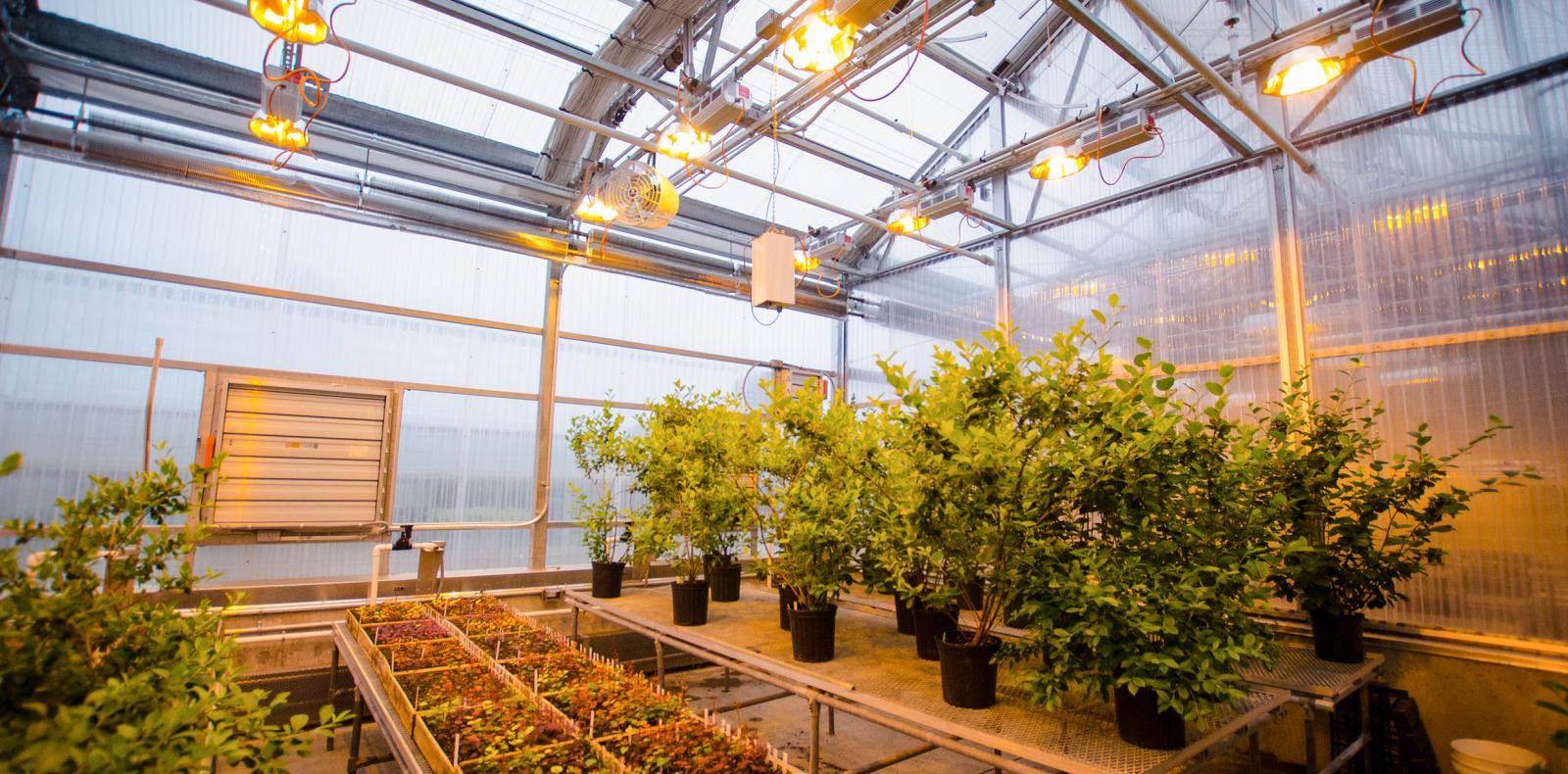UConn Plant Science Professors Gerald Berkowitz and Matthew DeBacco made history in 2019 when they introduced a cannabis horticulture course at UConn. They continued their legacy this semester by formalizing a cannabis cultivation minor.
The minor teaches undergraduate students how to grow cannabis. Specifically, it trains students in the propagation, cultivation, commercial production, maintenance, processing and potential markets for cannabis, according to UConn’s Office of the Registrar.
“It all started in 2014,” Berkowitz said.
Before 2014, all federally-funded universities were prohibited from studying “cannabis,” the term referring to all products derived from the plant Cannabis sativa. All forms of cannabis were considered a Schedule I drug and illegal on the federal level.
However, the 2014 Farm Bill changed everything when it created a distinction between two types of cannabis – hemp and marijuana.
Cannabis plants with a tetrahydrocannabinol (THC) content below 0.3% became considered hemp. Cannabis plants with a THC content above 0.3% became considered marijuana. THC is the psychoactive component of cannabis, according to UConn’s Office of the Vice President for Research.
The bill established the Hemp Research Pilot Program, allowing institutions of higher education to study hemp for research purposes.
“And that’s exactly what I did. I grew 2 acres of hemp in the UConn Research Farm,” Berkowitz said.
Berkowitz explained that hemp cannot be grown for THC like marijuana can, but it can be grown for cannabidiol (CBD), which is the non-psychoactive component of cannabis. CBD is a huge industry right now, said Berkowitz. Common benefits of CBD include easing symptoms of pain and anxiety. Berkowitz clarified that growing hemp and marijuana are very similar.
Berkowitz quickly saw increasing interest from undergraduate students in growing hemp.
“[Students] were waiting at my door,” Berkowitz said.
Because of the popularity, Berkowitz partnered with DeBacco to develop a cannabis course. They introduced the course that is now called SPSS 2130 Introduction to the Horticulture of Cannabis, the first cannabis horticulture course to ever be offered at a public university in the United States, according to the UConn College of Agriculture, Health and Natural Resources.
The course received publicity from news outlets including CBS News. Kiera Ulmer, a current senior, transferred from Bryant University to UConn after hearing about the course on the news.
“I said to myself ‘this is going to be the best class I’ve ever taken,’” Ulmer said.
Because of the publicity of the course, cannabis companies began giving UConn more grant money. Eventually, the federal government began to support UConn’s cannabis research.
Berkowitz and DeBacco began supporting undergraduate students in independent studies and field internships at cannabis companies.
Once we had a course, independent studies and internships, it was only logical to have a structured minor. We wanted students to have something documented, Berkowitz said.
Ulmer is a major advocate for the cannabis cultivation minor.
“I tell everybody all the time about the minor,” Ulmer said.
Ulmer is passionate about explaining cannabis as a professional industry. ‘I am constantly telling my peers that the minor is not about smoking weed,’ she said. It’s about growing and science.
DeBacco said that he and Berkowitz have been lucky because they haven’t faced any challenges in implementing the minor besides following rules and regulations. Despite the long held stigma against marijuana, DeBacco confirmed that UConn is very supportive of cannabis education.
“It’s becoming more and more mainstream, more and more accepted,” DeBacco said.
Cannabis education is becoming a trend throughout the country. Other universities are picking up on the merits of teaching cannabis.
“It’s spreading, and it all started here at UConn in a scholarly fashion,” Berkowitz said.
And the cannabis industry is in high demand. One of my students was making a six figure income and bought an Audi upon graduation, Berkowitz said.
When asked about the minor becoming a major, DeBacco said that he would like to see a major exploring the growing, medical, legal and political facets of cannabis. However, he cautioned that it may be difficult to create a major focused on only one plant.
UConn seniors Giovanni Sinta and Cassidy Koopmann are students within the minor and on the executive board of the UConn Cannabis Club.
“We don’t smoke and get high. We educate students and get rid of the stigma in a place we never thought we could,” Sinta said.
The minor requires 15 credits. Any student can declare the minor. The introduction class has no prerequisites.
“Even if you have no plant background, you will do fine in the courses. Just declare the minor. You probably need the random electives anyways, so differentiate yourself,” Koopmann said.
Hemp is no longer considered a Schedule I drug, but marijuana remains a Schedule I drug, which is why UConn is still prohibited from studying marijuana despite it being medically and recreationally legal in Connecticut.
However, under special licensing requirements established by the Drug Enforcement Agency, researchers can legally study marijuana if they obtain both a Federal Schedule I and a Connecticut Schedule II controlled substance license, according to UConn’s Office of the Vice President for Research.
DeBacco and Berkowitz are actively trying to obtain these licenses, but the process is complex and time consuming.


